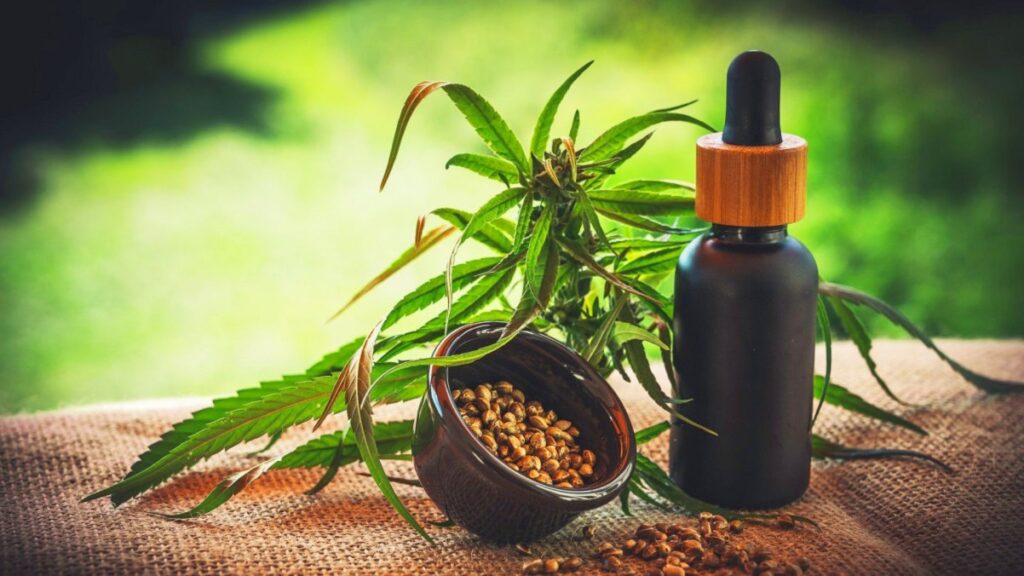The conversation around the best time to take CBD oil is shaped by a blend of anecdotal experiences and the burgeoning, yet still nascent, scientific understanding of its effects on the human body. As people increasingly turn to CBD oil for its purported health benefits, which range from alleviating anxiety to managing pain, the timing of its consumption becomes a pivotal aspect of its potential efficacy. In this exploration, we’ll delve into various factors that inform the optimal timing for taking CBD oil, while acknowledging that individual responses can vary widely.
Understanding CBD Oil
Cannabidiol (CBD) oil is extracted from the cannabis plant but contains little to no tetrahydrocannabinol (THC), the psychoactive component that induces the ‘high’ commonly associated with marijuana. It has gained popularity due to its reported therapeutic effects without the intoxicating consequences.

Intended Use and Desired Effects
The ideal time to take CBD oil largely depends on what you’re using it for:
- Anxiety and Stress: For managing daily anxiety, CBD oil might be taken in the morning to help provide a sense of calm throughout the day. If anxiety tends to spike at predictable times, taking CBD oil about an hour before such events may help to mitigate these acute stress responses.
- Sleep Aid: If the aim is to promote better sleep, taking CBD oil in the evening, around 30 minutes to 1 hour before bedtime, could allow the calming effects to manifest as you’re preparing to rest.
- Pain Relief: For chronic pain, consistent dosing at intervals throughout the day may maintain stable CBD levels in the body, potentially providing sustained relief. For episodic pain, such as headaches, taking CBD oil at the onset of symptoms might be preferable.
- General Health: Some users incorporate CBD oil into their daily health regimen, taking it at the same time they would other supplements, often with a meal to aid absorption.
Absorption and Bioavailability
The timing also depends on the method of consumption and the body’s absorption rate. Sublingual administration (under the tongue) is a common and effective method for taking CBD oil, as it allows for more direct absorption into the bloodstream and a quicker onset of effects, typically within 15 to 45 minutes.
Personal Physiology
Each individual’s endocannabinoid system (ECS), metabolism, and body weight can influence . How CBD oil is processed and how long its effects last. This personal physiology also determines whether CBD is more effective on an empty stomach or with food. For instance, taking CBD with fatty acids can increase bioavailability, but a full stomach may delay absorption.
Consistency Over Time
Some evidence suggests that CBD’s effectiveness may build up over time, necessitating a consistent dosing schedule for optimal results. Establishing a routine—taking CBD oil at the same time every day—might be more important than the specific time of day for some users.
Potential Side Effects
Side effects from CBD oil are typically mild but can include drowsiness, dry mouth, or digestive discomfort. Those who experience drowsiness may prefer to take CBD in the evening; those who do not might find it more beneficial in the morning or throughout the day.
Drug Interactions
CBD oil can interact with certain medications by affecting the cytochrome P450 enzyme system in the liver. This consideration is critical in determining not just when but if you should take CBD oil, underscoring the importance of consulting with a healthcare professional.
Quality of Life and Daily Routines
The integration of CBD oil into one’s daily routine should account for personal lifestyle, work commitments, and social obligations. Adjusting the time of day for taking CBD oil to best fit one’s schedule can enhance its practicality and effectiveness.
Legal and Workplace Considerations
Understanding the legal status of CBD oil in your region and any related workplace drug policies is essential. Even though CBD oil does not contain THC at levels that typically cause intoxication, full-spectrum products may have trace amounts that could potentially show up on drug screenings.
A Data-Driven Approach
Research on the best time to take CBD oil is ongoing, and as the body of evidence grows, recommendations may become more precise. Currently, the data is a patchwork of preclinical trials, limited clinical studies, and anecdotal reports.
Monitoring and Adjusting
Keeping a journal to note the timing, dosage, and effects of CBD oil can be a practical way to monitor its impact and adjust usage for maximum benefit. This personalized data can be particularly useful when discussing CBD use with a healthcare provider.
The Broader Picture
It’s essential to consider CBD oil as one component of a broader health and wellness plan. Diet, exercise, sleep, and stress management practices all play roles in overall health and can influence the effectiveness of CBD oil.
Conclusion
Until more definitive research is available, those interested in exploring CBD oil should do so thoughtfully and methodically, starting with low doses and gradually increasing as needed while carefully observing the effects. The guidance of a healthcare provider can be invaluable in navigating this process, ensuring that the use of CBD oil is safe, effective, and harmonious with one’s overall health objectives.
In the dynamic landscape of CBD research, patience and prudence are key. As each individual’s response to CBD oil is unique, the journey to discovering the optimal time for its use is a personal one, informed by careful consideration and attention to one’s own body and circumstances.
